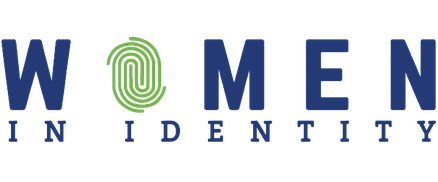
What do you do and what is it about your job that gets you out of bed in the morning?
I am the Director of Partnerships at Simprints, a non-profit technology company with the mission to radically increase transparency and effectiveness in global development, making sure that every vaccine, every dollar, every public good reaches the people who need them most. Practically, I lead a passionate and determined team to develop partnerships with a variety of other stakeholders within the international development space — iNGOs, technical providers, governments, etc.
What gets me out of bed in the morning (besides a strong cup of coffee)?
It’s seeing our sector throw millions of dollars into programs that simply do not reach the people they’re intended for. It may be that some of these programs are reaching beneficiaries and we just don’t know it but there is a data discrepancy of up to 50% in vaccination programmes. That means that we just don’t know whether or not 50% of beneficiaries received the intended services. Without real-time, accurate data linked to an individual, it’s like we’re fighting poverty and disease blindfolded. I must admit that makes me really angry :(
Simprints looks to address the “accuracy” piece by deploying biometrics to create unique IDs for each beneficiary. Our sense of purpose is really strong and the people that I get to interact with on a daily basis are an awesome, committed, smart, capable, passionate team.
How did you get to where you are today?
I kind of stumbled my way into it! In my previous life I was a crisis counsellor, working with folks who were often at their most desperate – survivors of assault and trauma, people suffering with addiction or those feeling suicidal. I worked across a number of countries (Zambia, South Africa, the U.S., China) and the impact was incredibly tangible. I really loved it and sometimes I do miss the day to day buzz of that work. But I felt we were always just reacting to some of the world’s larger more systemic issues. I wanted to get involved in driving forward change that will make a real difference for the future.
So, I decided to shift towards the global health and international development sectors. The main reason we are in this space is to create greater transparency and trust around the whole issue of identity and biometrics.
What is the most important lesson you have learned along the way?
This is going to sound a real cliche but, honestly, it was to trust myself. I know I won’t get things right all of the time but being able to cut through the noise and listen to myself was a huge learning curve for me. I noticed that the more I did it, the better results I had. Even if I was still wrong, at least I could own it as my own decision instead of something that was decided for me by others
What’s your pitch to CEOs in the identity space?
There are 1.1 billion people in this world that lack a formal identity. When you are working on developing identity solutions for the masses, don’t forget about those folks! There is a massive gap in the amount of data being used to underpin programmes. This can lead to complacency and an acceptance that data – and therefore resources – will be misused. We have to stop this NOW!
If you continue to focus on narrow proprietary solutions, we will never get a truly holistic view of the individual. And when you are talking about healthcare programmes, this can lead to life-threatening situations. For instance, a midwife working in Dhaka’s Beguntila needs a single view of her patient, complete with medical histories. Often the Mother won’t have a formal ID, date of birth or other identifier so ensuring the correct interventions are given is incredibly difficult.
We need interoperability across the identity sector. At the end of the day all of the work we are doing will need to intersect so anything we can do as a global community to start that work now will be key! Your people have the talent, the passion and the ideas – make sure you use ALL of them and encourage knowledge sharing appropriately.
Why does diversity matter to you?
Achieving global impact is never the outcome of one individual. It is achieved by having a strong collective – one that it is diverse in background, ethnicity, opinion, education, gender, sexuality, ability …. We work closely with Community Health workers on the ground because they bring knowledge and experiences that feed straight into our product development.
What book or film would you recommend to your fellow members and why?
IMy choices all lay out (in a very readable, story-like way) the incredible histories / backgrounds of some of the most effective and ground-breaking global development interventions of our time.
Whatever It Takes by Paul Tough (an in depth look at the inspiration behind the Harlem Children’s Zone in the U.S.)

What advice would you give to the teenage ‘you’?
You’re going to be just fine. Keep doing what you do and stop worrying so much about what others think.”
Follow Christie on social media here: Linkedin, Twitter
“You’re going to be just fine. Keep doing what you do and stop worrying so much about what others think.”

